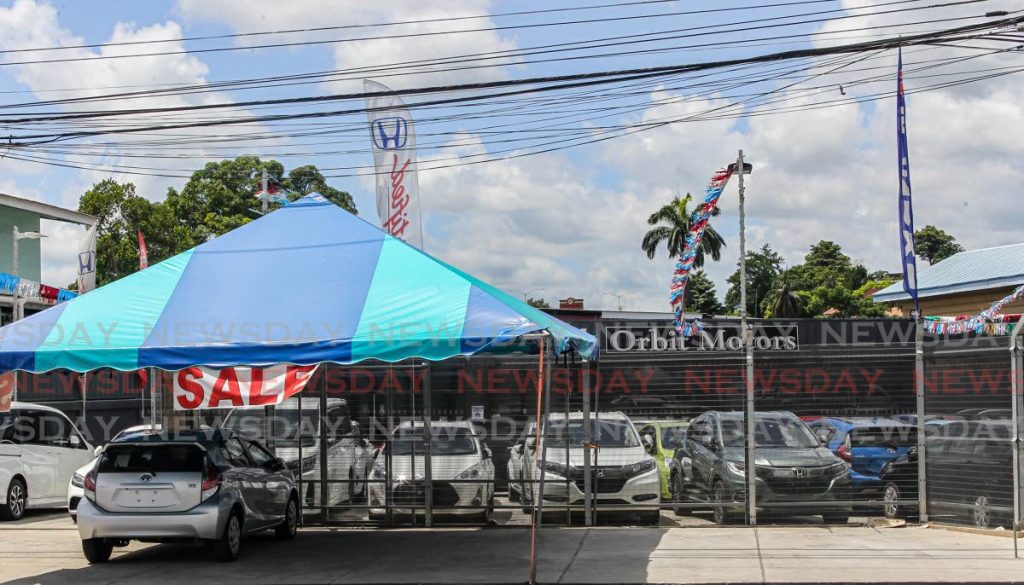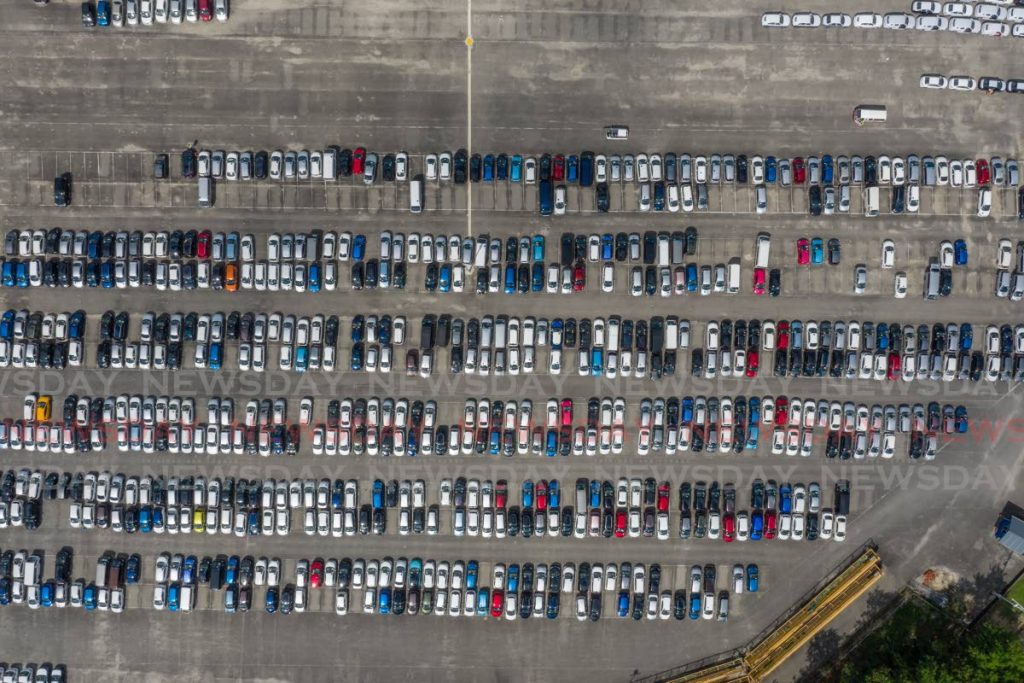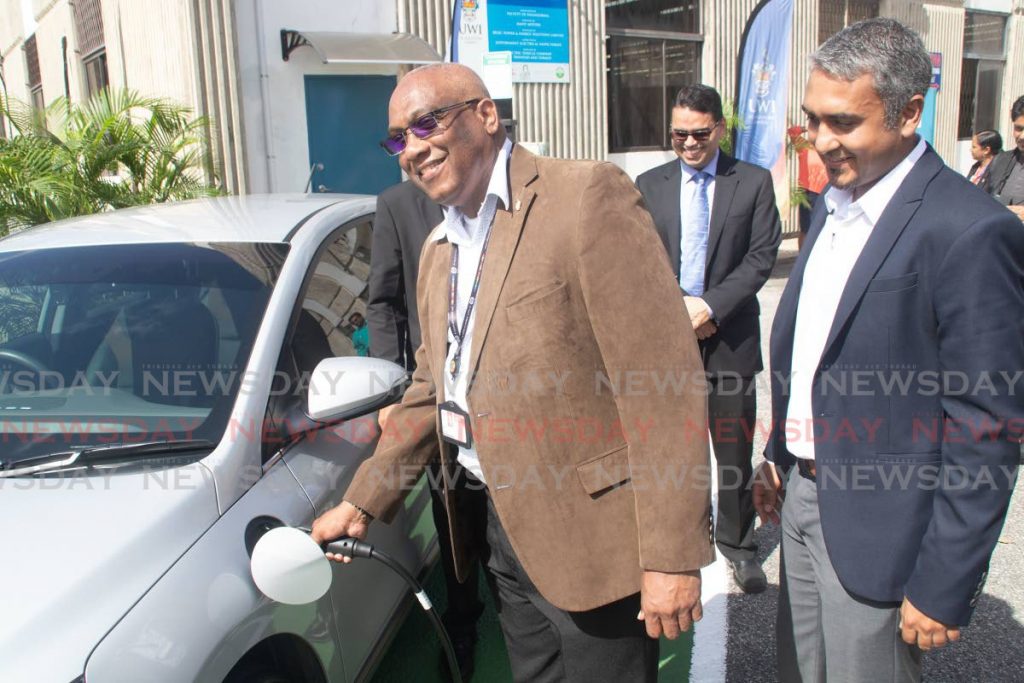Car dealers brace for removal of tax breaks

Are you planning to buy a new car this year?
Last year would have been better. The tax breaks on cars, which once included value added tax (VAT), motor vehicle tax (MVT) and Customs duties, no longer exist.
Finance Minister Colm Imbert has said their removal was one mechanism by which the government intended to plug a leak of foreign exchange. The removal of tax concessions for private vehicles came into full effect on January 1, as he announced in the 2020/2021 budget. Tax exemptions on commercial vehicles remain.
In his budget presentation on October 5, he said that more than US$400 million, or TT$2.5 billion, was spent annually on importing cars, of which at least two thirds was spent on private vehicles.
Imbert broke down the statistics, explaining there were almost a million vehicles in TT, with more than 25,000 being imported annually.
He said, “All private motor cars will now attract customs duty, motor vehicle tax and VAT, with the lowest rates of duty and tax being imposed on hybrid cars, electric cars, CNG cars and small engine cars...to encourage their use.”

During the Parliamentary debate for the Appropriations Bill 2020 in December, Imbert said US$300 million in foreign exchange went out of Trinidad and Tobago to purchase private cars in 2019. And of nearly 25,000 of vehicles imported, 20,000 were private cars. Exemptions since 2016 cost the State $1 billion. "We can hardly afford that level of leakage at this point in time. So that is the primary reason for the measures to suppress demand to some extent and to reduce the leakage of foreign exchange for motor cars," he said.
Where has this left car dealers, including used car dealers and of course, car owners?
Business Day spoke with president of the Automotive Dealers Association of TT (ADATT) Ryan Latchu, who said they were bracing for the impact on their imports and sales.
He said, “The removal of tax and duty exemptions on hybrid, plug-in hybrid, electric and CNG-powered vehicles will adversely impact imports and sales of these models.
“Although we understand the rationale for taking such measures at this time, we see it as counter-intuitive to the promotion and sustainment of a modern and green economy.”
Latchu added that the members of the association would have to consider realigning their product portfolios, which would now be based on the availability of foreign exchange.
He noted that this would need collaboration with government to find an amicable solution.
Since the announcement of the tax and duty exemptions, Latchu said there had been an uptick in the sale of hybrid, plug-in hybrid, electric and CNG powered vehicles.
“We have seen an increase in sales of these models over the last two months and we believe customers have accelerated their purchase decision to take advantage of the concessions that ended on December 31.
“At the moment we do not have any quotas in place...and no there is no indication of same for 2021.”
The new measures were not sitting well with the president of the TT Automotive Dealers Association (TTADA) Visham Babwah, who said the removal of the exemptions has thrown the used car industry into disarray.

He said the change in permitted age of imported cars from four to three years has adversely affected their shipment for the new year, and any extensions at the ports to allow delayed cargo in at the same cost had also ceased.
Babwah told Business Day, “Usually if there were any late shipments the licences would be revalidated, but this year, they (government) said they would not do that. They have been cruel to us.
“We have no control over the shipping line. The government was very harsh to used car dealers. We had cars ordered and had to cancel the orders. We just could not risk it.”
Babwah explained that the cost of vehicles, generally, would increase as the new systems in place would have a trickle-down effect on vehicles with combustion engines.
He said old stocks will be sold at the old prices, but from January 1, but vehicle prices would increase significantly.
“The prices for a three-year-old vehicle would obviously increase. So people who were unable to purchase cars before the end of last year would now have to pay more.
“A Toyota Aqua, which was the smallest and cheapest car on the market, which was selling for about $75,000, will now be sold for about $100,000 and a Honda Vezel would now be sold for $185,000.
“The cost of a non-hybrid car would also increase by about ten-15 per cent. Although the taxes are for the hybrid vehicles, the move from four to three-year importation-age cars would increase the prices.”

The yearly quota for the used car industry has been 13,500 vehicles, Babwah said but the new plans announced in the budget to reduce the quota have now put added strain on dealers.
“The new quota letter has not been issued yet but over the years the used car dealers have not fully maximised on it. The national quota of 13,500 is to be shared among nearly 500 dealers. That means the smaller dealers have a quota of 15 cars and the largest ones will have near 350 cars.
“The government is saying that a quota cut would assist in the consumption of forex and all the other national motoring ills. We import less than new car dealers. We use maybe about one per cent of the forex.”
Babwah claimed the figures quoted by the minister for the number of cars on the roads were false and that, coupled with the consumption of forex, had placed stress on the operations of the industry.
He said, “The purpose of this industry was to help the lower- to middle-income earners afford a vehicle, assist the associated businesses and create jobs. But that has been defeated now.
“There is no doubt that in the coming months jobs will be lost. I can say for my business this is already a discussion I had with my employees, and it is unfortunate.”

From February into March, it is going to become difficult, he said, and business will drop because of these new measures and the strain that covid19 has also put on the economy.
Babwah called for a meeting with the authorities to re-evaluate the exemptions and predicted a decline for the industry, if not closure.
He suggested, “The importation age of vehicles should be left at four years and not all taxes should be implemented for the hybrid vehicles. The move to greener, cleaner vehicles was being done all over the world. The quota should also remain the same and maybe for hybrid vehicles, the VAT and MVT only could be removed, or the Customs duties only. This would still attract people to purchase.”
In his presentation of the Appropriation Bill 2020 last month, Finance Minister Colm Imbert outlined the new customs duty and motor vehicle tax (MVT) rate schedule for private motor vehicles. New CNG and hybrid vehicles with an engine size not exceeding 1599 cubic centimetres (ccs) and new electric vehicles with an engine size not exceeding 159 kilowatts will now attract $4 per cc in MVT. Used CNG and hybrid vehicles with an engine size not exceeding 1599 ccs and used electric vehicles with an engine size not exceeding 159 kilowatts which are not older than three years will attract a motor vehicle tax $3 per cc. A customs duty of 20 per cent would be imposed on private motor vehicles, whether used or new, that are electric, hybrid or CNG and which have an engine size not exceeding 159 kilowatts or 1599 ccs, respectively. This rate of duty is five per cent lower than the current lowest level of import duty for private motor vehicles with an engine size smaller than 1599 ccs.


Comments
"Car dealers brace for removal of tax breaks"